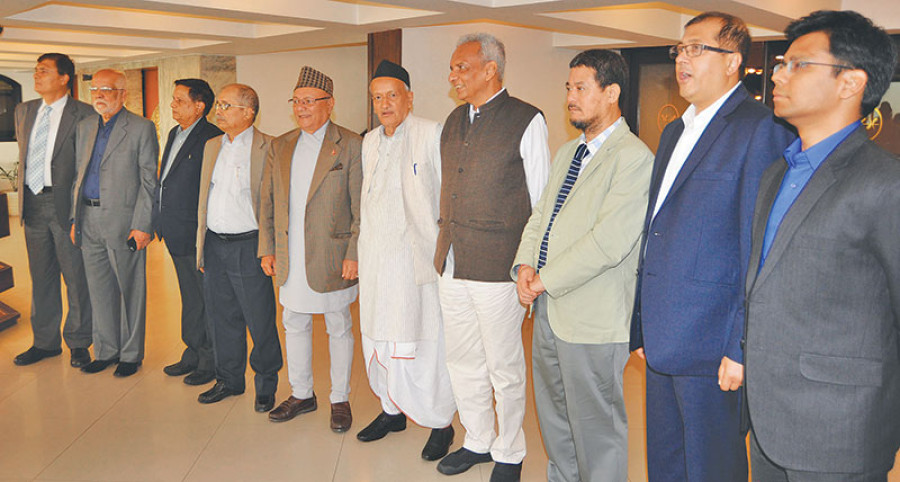Miscellaneous
EPG completes its task with single joint report
In a major breakthrough, the Eminent Persons’ Group on Nepal-India relations has prepared a single report and announced that its task is over.
Anil Giri
In a major breakthrough, the Eminent Persons’ Group on Nepal-India relations has prepared a single report and announced that its task is over.
The ninth meeting of the EPG that concluded in Kathmandu on Saturday prepared a single joint report that will soon be submitted to the prime ministers of Nepal and India.
The single report became possible after both sides agreed to replace the 1950 Treaty of Peace and Friendship by a new one, to regulate the Nepal-India border by making people produce identity cards while crossing over to either side, and to jointly tackle common challenges in areas of combating terrorism, extremism and all kinds of trafficking, according to sources.
After preparing the joint report, the eight EPG members will submit it to their governments for implementation. “We have prepared a joint report and with this the meeting is over,” said Bhekh Bahadur Thapa, Nepal coordinator of the group. “Once we submit the report to both the PMs, our task and responsibility is over.”
Both sides have agreed to reveal the contents only after submitting the report to the PMs of the two countries.
After the EPG submits the report, the onus lies on the governments of Nepal and India to implement the recommendations. The report carries suggestions on resetting the centuries-old bilateral relations that entail political and economic matters. The recommendations concern trade, commerce, water resource, people-to-people contact and cultural ties, said Nepali members.
One EPG member said they have sought to define bilateral relations suitable for another generation. On the 1950 Treaty, which Nepal considers unequal, both sides have suggested replacing it with revision to articles 2, 5, 6 and 7. On the issue of national treatment for citizens of the other country, both sides have agreed to consider the nations’ sizes of geography and population.
It may be a coincidence that the EPG was formed when KP Sharma Oli was the prime minister in 2016 since he will be receiving it in his second stint as PM. “Some of the good gestures and positive developments on both sides led to a single report within the stipulated time,” said officials.
Indian members who are leaving on Sunday will communicate to the Nepali side after discussing the developments with India’s Prime Minister Narendra Modi in New Delhi.
The group was entrusted with putting together a mutually agreed document within two years, suggesting ways to strengthen bilateral ties in view of evolving regional dynamics and the world order. The EPG has the mandate to look into five broad areas of bilateral relations—politics, government-to-government ties, development cooperation, economic deals, and cultural relations. The formation of the EPG was first agreed to during the Nepal visit of PM Modi in August 2014.




 17.9°C Kathmandu
17.9°C Kathmandu










